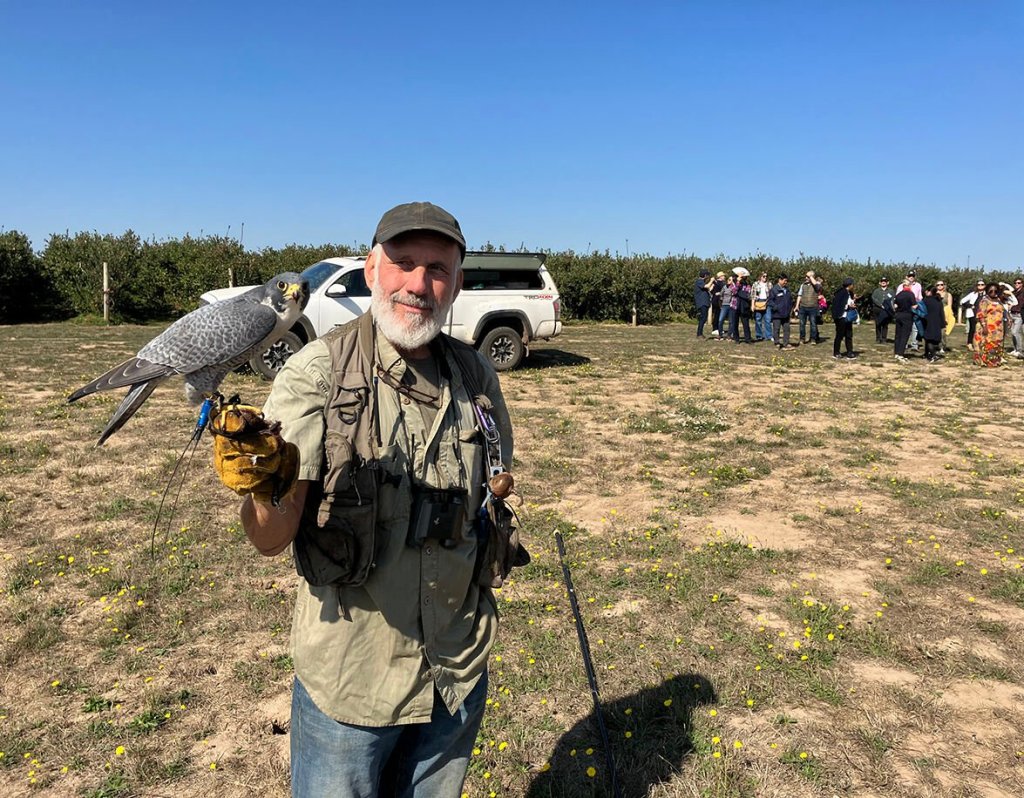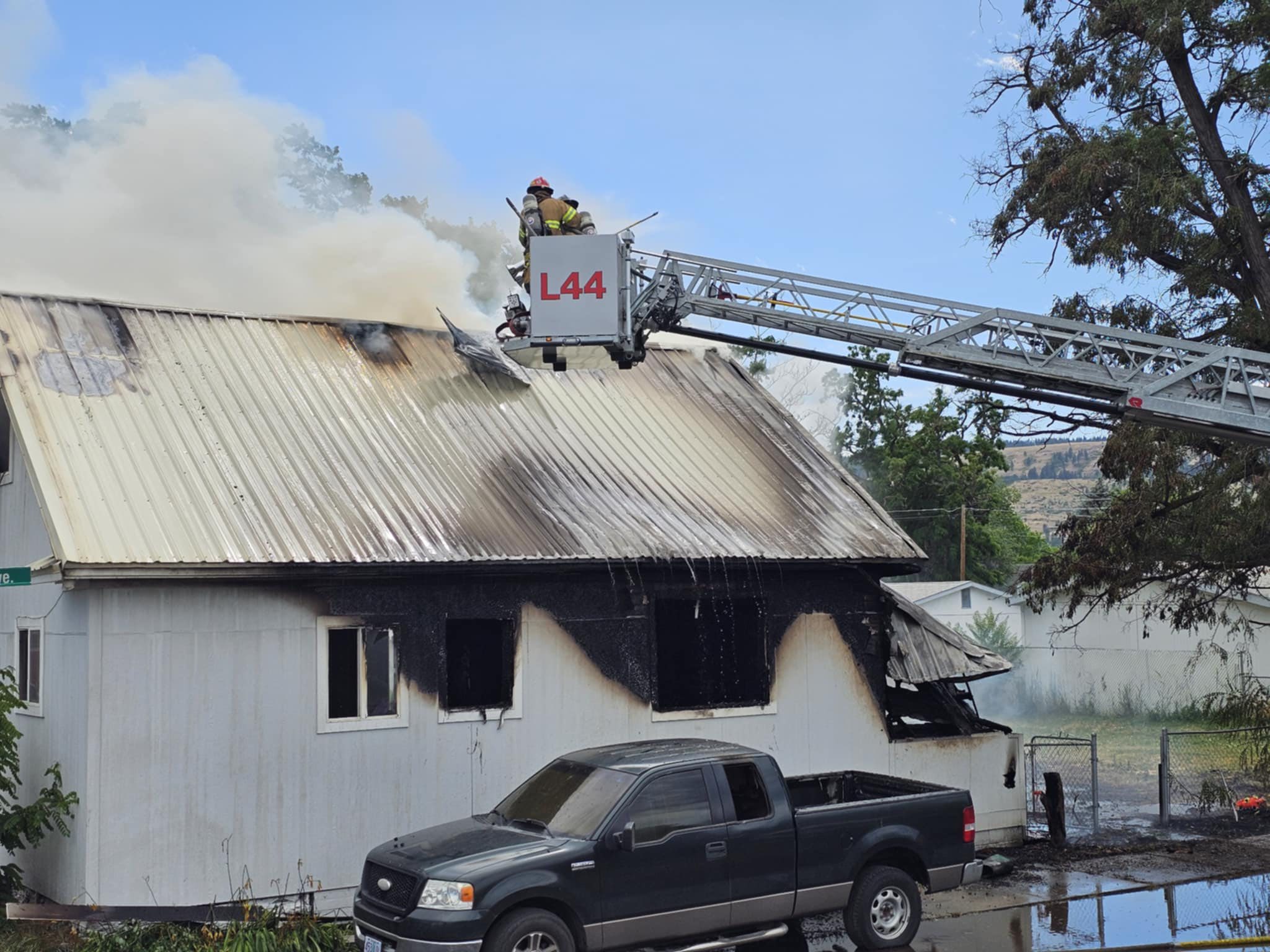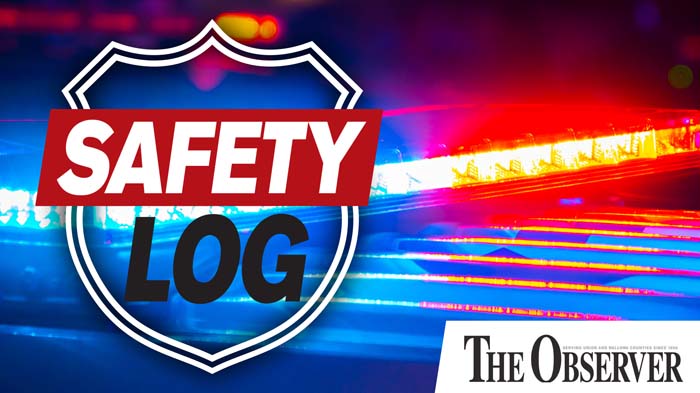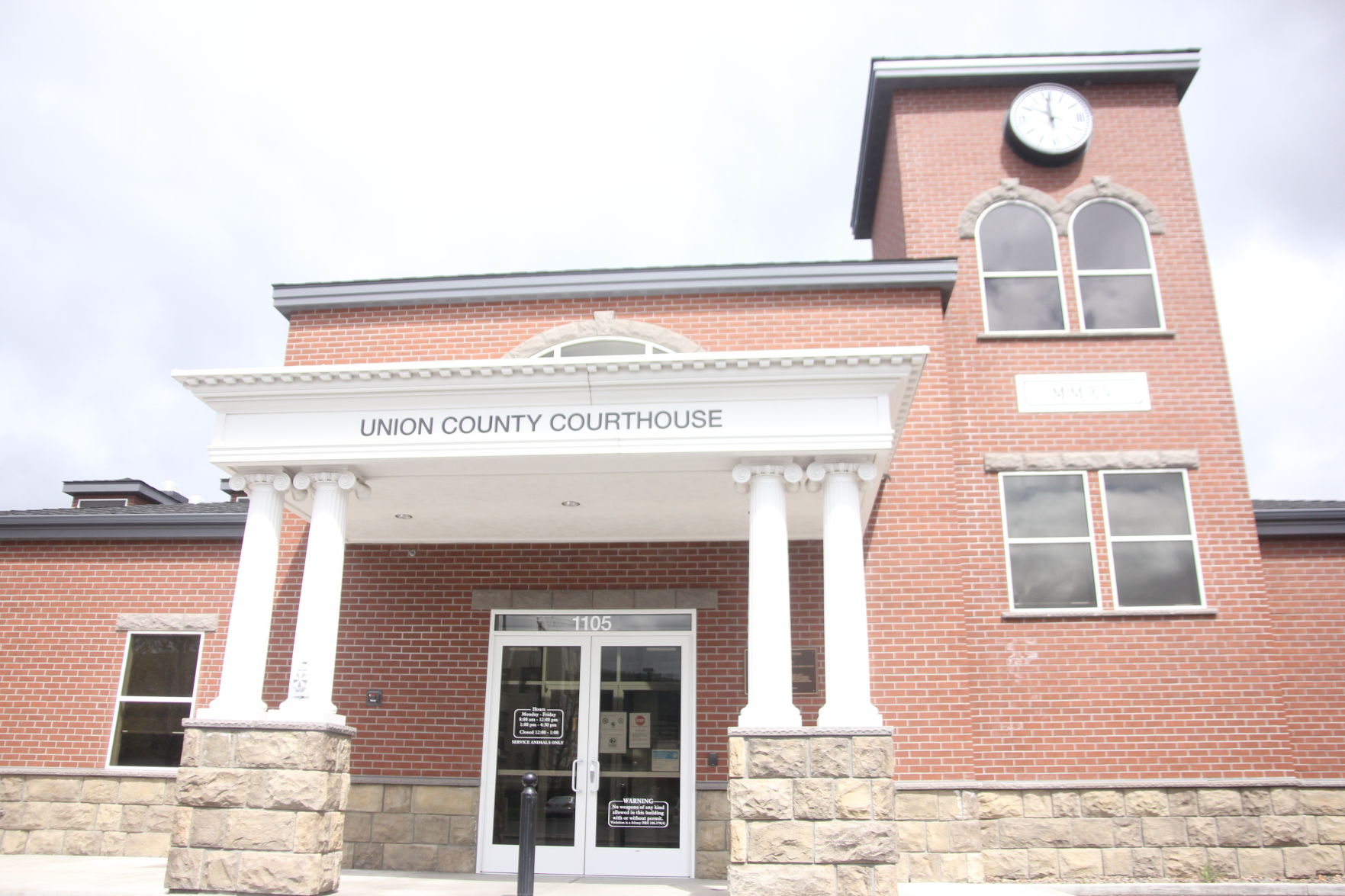Oregon farmers oil the wheels of diplomacy during attache tour
Published 11:00 am Saturday, September 23, 2023

- Keith Richman, falconer, gives a demonstration for Pan American Berry Growers near Salem to a group of agricultural attaches touring farms in Eastern and Central Oregon in September 2023.
SALEM — Farms across Oregon recently helped oil the wheels of diplomacy during a weeklong tour of the state’s agriculture industry by a group of international embassy officials.
Nearly 30 agricultural attaches, or diplomats specializing in food and farming, from 22 countries participated in the trip, which spanned Eastern, Central and Western Oregon on Sept. 17-23.
“The goal is to teach the attaches about Oregon ag specifically,” said Ireland Stevenson, public affairs specialist with USDA’s Foreign Agricultural Service. “They don’t work a lot in state-specific industries. They are more international in scope.”
The agency has hosted the tour since 1986 to reveal the day-to-day work of American farmers to attaches, who are usually surrounded by lobbyists and politicians while stationed at embassies in Washington, D.C.
“It’s great to get out of there and be able to see a bit of U.S. agriculture,” said Matthew Worrell, an agricultural attache from Australia. “There’s nothing like meeting with farmers and seeing their farms.”
The experience allows the attaches to “ground truth” the claims of experts in the nation’s capital about the factors affecting U.S. farming, he said.
“It’s not quite as simple as we hear from certain representatives about how they impact agriculture,” Worrell said.
Diplomats are exposed to farms of many and various types and sizes during the tour, which goes to a different state each year, said Jess Paulson, director of market access and certification at the Oregon Department of Agriculture.
Improve understanding
“We’re trying to improve the understanding of the diversity of agriculture in the United States,” Paulson said. “Too often, the narrative gets stuck on corn and soybeans and really big farms, and American agriculture is seen just through that lens.”
The tour is an opportunity to speak with foreign diplomats about key issues affecting agriculture trade, such as pesticides and genetic engineering, in an informal manner, he said.
In Oregon, the tour focused on farming areas around the cities of Hermiston, Bend, Salem and Portland, with stops along the way.
Roughly 80% of Oregon-grown farm products leave the state, with about half of those heading to foreign destinations, Paulson said.
Increased exports can relieve the downward pressure on prices when there’s a glut in supply, as occurred this year with cherries, he said.
“The relationship we have with foreign markets is essential to the health of Oregon farms,” he said. “It’s always about diversification.”
Countries represented on the tour buy farm products from the U.S. and vice versa, while others are competitors or simply face similar challenges, such as water shortages, insufficient labor and aging farmers, according to participating attaches.
“In the end, our problems are very similar,” said Astrid Jakobs, an agricultural attache from Germany.
The tour allows the diplomats to see the reality behind the announcements from USDA, such as the billions of dollars invested in “climate smart” farming, she said.
Attaches can also bring back useful ideas for farmers in their own countries, such as Oregon’s “food hubs” that help aggregate and distribute locally grown crops, Jakobs said.
Time to talk
Spending long hours on a tour bus inevitably spurs communication among the attaches, building relationships that may later prove useful, said Worrell of Australia.
“It’s a unique opportunity to spend this much time with the other representatives,” he said. “You get to do a lot of talking.”
Agricultural attaches serve a variety of diplomatic functions, such as monitoring farm developments in the U.S., smoothing import and export disruptions and facilitating research and education involving multiple countries.
“Really it’s helping that trade flow,” said Worrell.
Fundamentally, they’re expected to perform any duties that are useful to their embassies, said Besla Kocsy, an attache from Hungary. “Whatever the ambassador says we are. If it’s a driver, then it’s a driver.”









